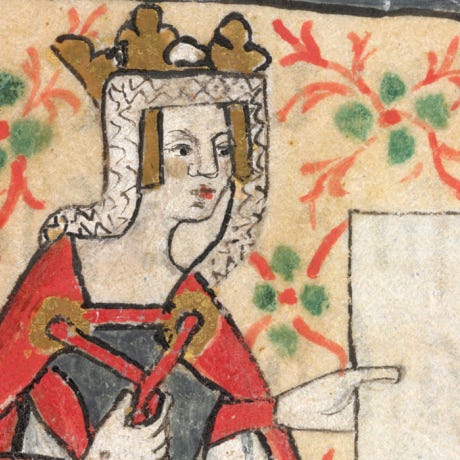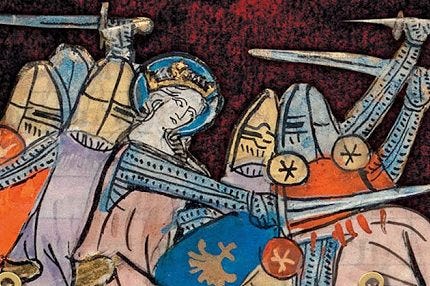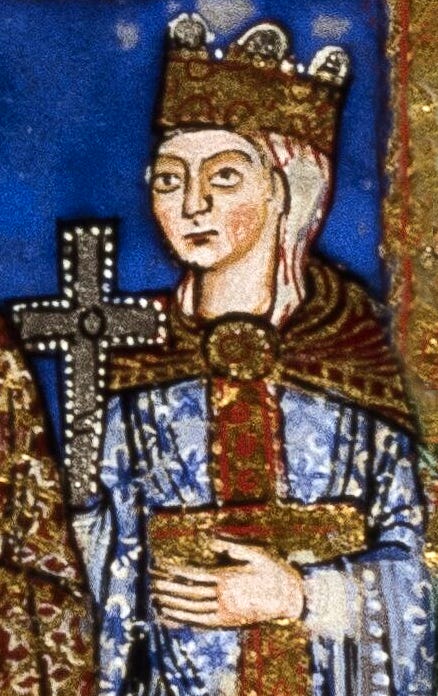What is a Matriarchy?
Matilda's Top Knot Turn Up
Much like the century old oaks in my front yard, the patriarchy has deep roots. Roots that extend far beyond what our imagination can conceive. Snaking below the surface to ensure longevity, providing a foundation for the imposing figures looming over us. Though these roots are deep, they pale in comparison to the deeply ingrained patriarchal social norms that are embedded into our every day, taking up a significant portion of our personality pie-chart below the surface. Each generation before us has experienced its own set of unique patriarchal social standards. Norms which are then internalized into each subsequent generation if the social cost was traumatic or rewarding enough to imprint. A falling branch, building momentum unable to unravel from the entanglements of Spanish moss, thundering towards collapse.
Too often patriarchal social norms become default behavior without inspection. So much of our everyday is impacted by socialized gender norms: From the moment we step out of bed, we are tethered to behaviors and routines determined by someone other than ourselves. In the products we use on our body, to the roles we are preparing to assume throughout the upcoming day. An entrenched system, deeply rooted.
A primary caretaker wakes hours before sunlight just to secure time for regulation. Breathe in, breathe out. She stares at the reflection before her, a face full of makeup she’d rather go without but can’t stand to field the choruses of ‘you look tired’ that would surely follow. Her partner stumbles out of bed, soul-beat, yet raised to prioritize productivity for the men he reports to.
The patriarchy generationally benefits when en masse we believe it has ‘always been this way.’ Yet we can see a distinct transition from pagan and indigenous social norms to Euro-centric Christianized social norms, bringing with it the othering of woman into her domesticated, isolated role of modern mother. “The introduction of the Christian model of marriage did not alter the role of the wife, even though it increased her responsibilities. Bearing children, which might have been done by a succession of wives or simultaneous wives in an earlier period, and supervising domestic activities, which had been previously shared by all female members of the family, were now the exclusive duty of one wife. Further, a married woman in the ninth century had greater responsibility for land management than her Merovingian ancestors. She was thus expected not only to produce children but also to administer a complex family economy.”1 The invisible mental load is not a new phenomenon.
As we build each new generation upon the last, rules and norms are inherited until the generational impact is broken and active inspection occurs. If not, the cycle blindly lives on. What is you versus what has been socialized? This is what living in a patriarchy requires as it intentionally blurs the line between gender and innate humanness, allowing a dominate group (most specifically white men) to be positioned above the rest. Traits such as leadership and audacity are not masculine, they are human, as are all roles and characteristics that any human can occupy or display: We are not a separate species. Only in a patriarchy are behaviors gendered and placed into a hierarchy as if one group possess a monopoly on a few key human traits.
What would social norms look like in a society that is linked rather than ranked?
Lady of England
In December of 1142, Matilda, granddaughter of William the Conqueror and only surviving legitimate2 child of Henry I, should have felt secure in her position as the first queen regnant of England. Instead, she was shrouding herself in white and braving a dangerous escape into the wintry landscape to fight on for another day. Cloak secured, this once Regina Romanorum crept out into the snowy night, camouflaged against her alabaster background. Trekking upwards of nine miles under the cover of darkness to the safety of Abingdon-Upon-Thames, Matilda ensured the continuation of The Anarchy for another ten years; her bravery and righteousness of position illustrated for all to bear witness to. Unfortunately, a culture of deep misogyny and entrenched patriarchy kept Matilda from achieving her ultimate goal: securing her father’s crown and ruling in her own right over England.
Henry I understood that positioning his daughter as rightful heir would not be as straightforward as it would have been had his son survived the tragic White Ship accident. Well versed in the sexist realities of his time, he required his barons to swear an oath of fealty to Matilda on three separate occasions prior to his death in 1135: once in 1126, again in 1131, and finally in 1133. Misogynistic bias often leads historians to view these oaths as taken under duress, yet “there is no record of a single word of protest from any of the Anglo-Norman nobles when Henry required them to swear that they would support his daughter as his successor.” The only documented squabble from any of the affairs is a fight over “who should be first in line to take the oath.”3
In December 1135, quickly after Henry’s death, Matilda’s cousin Stephen of Blois sailed from Boulogne to England, beelining straight to London to declare himself king. Once doing so, he went onward to Winchester to seize the royal treasury and had himself anointed by the archbishop of Canterbury. Regardless of Henry’s wishes or Matilda’s intentions, once annotated, Stephen was king of England in God’s eyes. A nearly indisputable claim with the added benefit of a still-new single monarchy loosely tethered to old electoral tendencies. The barons that continually and enthusiastically vowed to uphold Matilda’s birthright quickly faltered and repositioned their support into Stephen’s camp. Matilda’s reaction to this plunged England into a 15-year-long civil war now known as The Anarchy.
Contemporary chroniclers remained disparagingly silent on Matilda’s true character throughout her life, the misogyny of the day clouding their positions and the misogyny of today continuing on with the patriarchal tradition of historical sexism. When we do get brief mention of her movements, we are presented with her “haughtiness” and “insufferable arrogance”. Canon traits of all prior monarchs including the man behind the coup she was actively rebelling, yet only weaponized against Matilda for failing to be feminine. Further exploration into the influence her powerful father and equally severe and influential first husband, Heinrich V, had upon her is too often neglected. Nor is there a consideration that as a ruling partner in her role as Empress of the Holy Roman Empire, her own sense of regality and righteousness may have been internalized quite young, as she stepped into that role at just eight years old. “The truth of the matter was that Matilda found herself trapped.”4
“In such circumstances, it is hard to imagine quite what Henry would have had to do to be accused of acting with ‘insufferable arrogance.’” - Helen Castor
In 1141, Matilda and her supporters captured Stephen after a forced pitched battle in Lincoln went disastrously for the king. During this time Matilda assumed the role of Lady of the English. A role meant to emulate kingship without utilizing the Latin rex. Modern medievalists insinuate a title such as this was ‘novel’, yet there were precedents for female rule already within England under the very title of Lady. From 911-918, Æthelflæd was styled the Lady of the Mercians, a territory in the English Midlands prior to the uniting of the English kingdom under one monarch. There is evidence Æthelflæd ruled Mercia in her own right, though as a later victim of patriarchal propaganda, her rule has been minimized over the centuries and remains debated within scholarship. “In the twelfth century, Henry of Huntingdon declared her to be ‘so powerful that in praise and exaltation of her wonderful gifts, some call her not only lady but even king’.”5
Unable to maintain her position as Lady of England due to a detrimental prisoner trade and malicious misogyny, Matilda eventually capitulated, realizing that the continuation of a civil war was not in the interests of anyone any longer. Instead, it was negotiated that Matilda’s eldest son Henry would become Stephen’s successor. Though Matilda would never rule England in her own right, upon the signing of the Treaty of Wallingford in 1153, she became the matriarch of the Plantagenet dynasty. A dynasty that would rule England for the next three hundred years.
“Breaking into a system that was never designed for us.”
When Matilda played her role as young diligent wife, tempering the Holy Roman Emperor’s contemptuous behavior, she was seen as ‘good Matilda’, behaving with “dignity and grace.” It is not lost upon me that once Matilda transitioned from a role that served patriarchs to one which dictated them, she lost all patriarchal praise and became a woman needing to be put back into her proper secondary place. True to form, the patriarchy is still white-knuckle-gripping gender roles made evident in the erasure of trans voices and policing of women’s bodies. The patriarchy is predicated on domination, requiring the disdain for the feminine just as much in 2023 as it did in the 1130s.
In my last piece I ended with a bit of a bold statement: We must smash the patriarchy and uplift the matriarchy. Much as I was expecting (though surprisingly within a separate essay’s comment section), the argument was put forward that the behavior of all these matriarchs I’ve highlighted are endemic of a system that would operate exactly as a flipped patriarchy. So, lets zoom in on that. Matilda was de facto monarch while Stephen was imprisoned, yet she is not regarded as the first woman ruler of England (nor is Lady Jane Grey, the later ‘Nine Days’ Queen’.) However, Edward V, a boy who was imprisoned the entirety of his tragically short reign in 1483 is considered to have been king of England, though he, much like Matilda, was never anointed with the holy oils. The reason for the double standard is patriarchy.
Our patriarchal social norms are deeply rooted, becoming so long before Matilda blazed a trail through England’s medieval landscape. Matilda was a matriarch in the sense that she was the head of a family and held high status as a woman. However, just because a matriarch ruled, does not mean the society’s values suddenly shifted towards matriarchal social structures. A woman leader in a deeply entrenched patriarchy is simply a woman whom rules in a patriarchy, nothing more. If social structures could be so easily flipped then Elizabeth I would never have had to flex her internalized-misogyny in order to drum up participation 440 years after Matilda in the famous Tilbury speech. Matriarchal social norms would never require the minimization of anyone, particularly a woman.
'I know I have the body but of a weak and feeble woman, but I have the heart and stomach of a king, and of a king of England too.' - Elizabeth I
I’d argue that more than any one instrument of influence within my lifetime, the Barbie movie was able to place the word ‘patriarchy’ into social vernacular. However, because Barbieland simply depicted patriarchal social norms flipped, many came to assume that a matriarchy was naturally a patriarchy with women leaders, which is wholly incorrect and ironically symptomatic. A matriarchy in terms of cultural anthropology is a society that uplifts motherhood and community. Child rearing is at the center of all decision making within matriarchal structures, no longer gendering the role of caretaker or caretaking acts: The entire community is responsible for the care of the community. Though similar to patriarchies in the essence that they are often matrilineal, gender equality is imperative within matriarchies as individuals become linked in community and not ranked within capitalistic hierarchy. To assume they are the same exposes our inner bias that someone has to be superior.
The patriarchy is so oppressive we’ve lost the ability to imagine other realities.
Further Reading/Watching/Listening
Women in Frankish Society, Marriage and the Cloister: 500 to 900, Suzanne Fonay Wemple
All children are legitimate, but this is a term that aligns with contemporary thought.
She Wolves: The Women who Ruled England Before Elizabeth, Helen Castor
Ibid.
Femina: A New History of the Middle Ages, Through the Women Written Out of It, Janina Ramirez















This was really interesting. Thank you. I knew only a bit about the struggle between Stephen and Matilda. This really helped flesh it out. And I was nodding vigorously when I read "A woman leader in a deeply entrenched patriarchy is simply a woman whom rules in a patriarchy, nothing more." YES!!! That's the point exactly! It's why female and feminist politicians and leaders always seem to fall short of the hopes we pin to them. The game is rigged but they have no choice but to play it, and in doing so, they become servants of the system.
You make such a great point about Edward V. Have you read Elizabeth Lesser’s Cassandra Speaks?